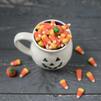People with NAFLD (non-alcoholic fatty liver disease) and NASH (a type of NAFLD known as non-alcoholic steatohepatitis) have low levels of vitamin E in their blood, a result of oxidative stress. Oxidative stress is a damaging imbalance in the body that happens when you do not have enough antioxidants to neutralize other molecules called free radicals. This harms cells and can occur from alcohol, drugs and other factors. Vitamin E, a powerful antioxidant, helps to balance antioxidants and free radicals. In addition, a 2014 study revealed that patients who received vitamin E over a period of 96 weeks experienced reduced inflammation and fat content in the liver, as well as decreased liver cell death.
Foods that contain Vitamin E: salmon, spinach, avocado, mango and almonds. Check out Amsety´s Beetroot and Avocado Salad recipe for a light vitamin E fueled dish.
Vitamin D helps prevent inflammatory and metabolic liver disease. A 2009 study found that 92% of 118 people with chronic liver disease had vitamin D deficiency. People with the lowest levels of vitamin D were more at risk for developing cirrhosis, permanent scarring of the liver. Known as “the sunshine vitamin,” vitamin D allows your body to absorb calcium, which is essential for developing strong bones. A complication of chronic liver disease is osteoporosis, a condition that causes bones to weaken, making patients more susceptible to fractures. Not getting enough vitamin D can worsen this complication. In addition, a 2013 study discovered that vitamin D deficiency may be linked to hepatitis B (HBV), a virus that affects the liver.
Foods that contain vitamin D: tuna, egg yolks, certain mushrooms, fortified milk, and natural orange juice. Try Amsety´s Gluten Free Gnocchi made with scrambled eggs.
Like vitamin E, vitamin C is also an antioxidant that helps to neutralize other molecules called free radicals. Not enough antioxidants create an imbalance called oxidative stress, which can harm cells and cause liver diseases. In addition, vitamin C helps to prevent fat accumulation in the liver, which can lead to fatty liver disease.
Foods that contain vitamin C: oranges, strawberries, tomatoes, Brussel sprouts, and potatoes. Amsety’s Roasted Sweet Potatoes and Brussel Sprouts recipe is a two-in-one for vitamin C!

Discover the first nutrition bars designed to support liver health.
Read more >Eating enough foods with B vitamins can help reverse many symptoms of liver disease in its early stages. In particular, liver disease can cause vitamin B-1, B-6 and B-12 deficiencies. A large vitamin B-1 deficiency can cause a decline in mental abilities, such as coordination and memory, a vitamin B-6 deficiency can cause tingling and numbness from nerve damage, and a vitamin B12 deficiency can cause anemia, a condition where a person’s red blood cell count is less than normal, addition to similar symptoms from not enough vitamin B-1 and B-6. About 90% of vitamin B12 is stored in the liver. When the liver becomes damaged, the levels of vitamin B12 decrease.
Foods that contain B vitamins: chicken, soybeans, leafy green vegetables, bananas, and macadamia nuts. Amsety´s Lemon Poached Chicken is packed with nutrients beneficial for liver health.

5 Tricks to Have a Liver-Healthy Halloween

How Can Sugar Damage Your Liver?

6 Liver-Healthy Ways to Beat Food Cravings

How To Cook Liver-Healthy Food On A Budget
What´s your Liver Health Score?
Find out whether you are leading a livery-health lifestyle

Kitchen Companion Printable
Get a FREE monthly printable with liver health tips for your kitchen.

Related Subjects
Back to top